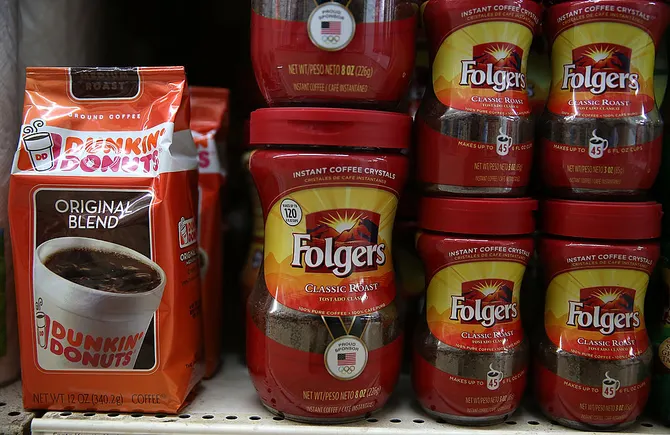The J.M. Smucker Co. is facing challenges with its coffee prices due to tariffs on coffee bean imports. In a recent earnings call on June 10, the company announced its plans to increase coffee prices for the fourth time since June 2024. The primary driver of direct material costs related to tariffs for Smucker is coffee bean sourcing, with the company primarily procuring unroasted coffee beans from countries like Brazil and Vietnam.
CEO Mark Smucker highlighted the impact of current U.S. tariffs on green coffee as the company’s largest exposure. Smucker buys approximately 500 million pounds of green coffee annually, making it a significant tariff-impacted import for the company. While the company did not discuss specific pricing for its brands, popular coffees like Folgers, Dunkin’, and Café Bustelo are among the most widely distributed by Smucker.
In addition to coffee, Smucker is also facing tariff exposure in other areas such as exports to countries with retaliatory tariffs, foreign-made products shipped to the U.S., and capital items used in its U.S. manufacturing plants. The company is working to mitigate these cost increases through alternative sourcing strategies, supply chain optimization, and responsible pricing.
The food and beverage industry as a whole has been grappling with pricing challenges due to uncertainty surrounding tariff negotiations between the U.S. and its trading partners. Companies like Campbell’s, General Mills, Tyson Foods, and Coca-Cola have all warned of potential impacts on their bottom line due to tariffs.
Overall, the J.M. Smucker Co. is navigating through the challenges posed by tariffs on coffee bean imports and is taking steps to manage cost increases while ensuring responsible pricing for its products. Consumers may continue to experience price increases as companies in the industry adapt to broader inflationary pressures and changing market dynamics.


